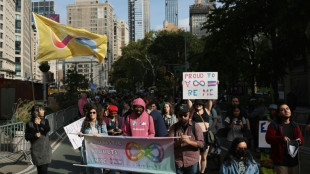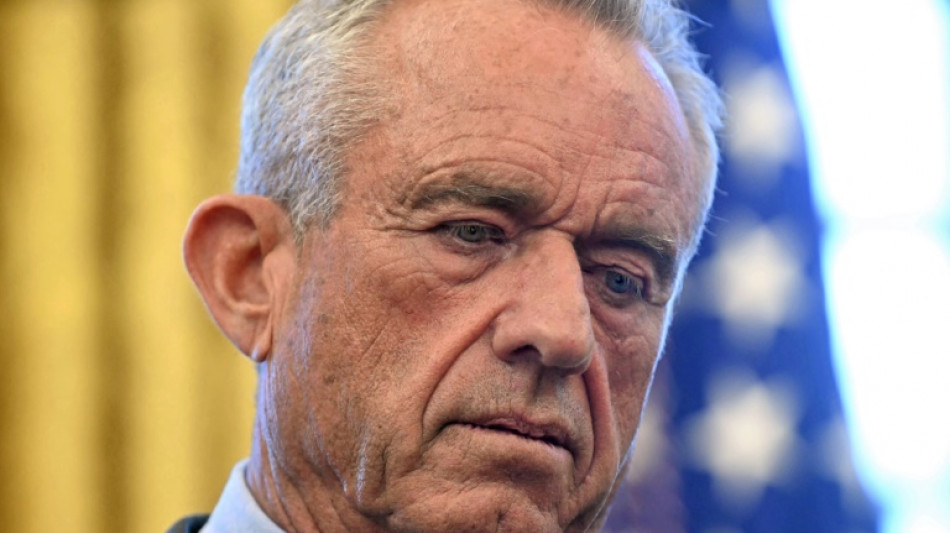
-
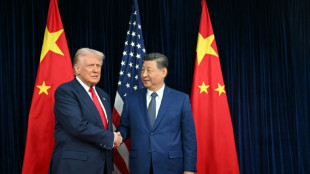 Asia markets fluctuate as investors mull Trump-Xi talks
Asia markets fluctuate as investors mull Trump-Xi talks
-
Trump, Xi ease fight on tariffs, rare earths
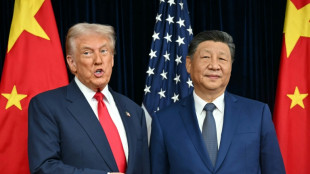
-
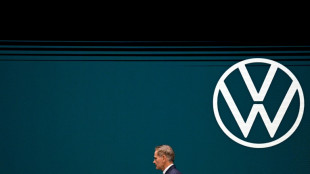 Volkswagen posts 1-billion-euro loss on tariffs, Porsche woes
Volkswagen posts 1-billion-euro loss on tariffs, Porsche woes
-
'Fight fire with fire': California mulls skewing electoral map
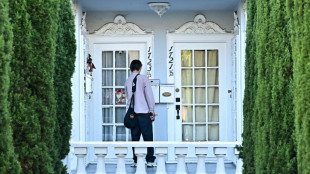
-
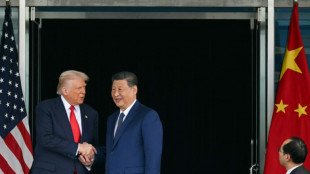 Fentanyl, beans and Ukraine: Trump hails 'success' in talks with Xi
Fentanyl, beans and Ukraine: Trump hails 'success' in talks with Xi
-
'Nowhere to sleep': Melissa upends life for Jamaicans
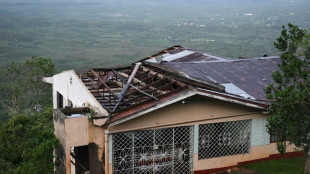
-
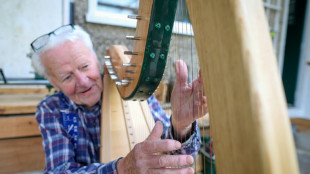 Irish octogenarian enjoys new lease on life making harps
Irish octogenarian enjoys new lease on life making harps
-
Tanzania blackout after election chaos, deaths feared

-
 G7 meets on countering China's critical mineral dominance
G7 meets on countering China's critical mineral dominance
-
Trump hails tariff, rare earth deal with Xi
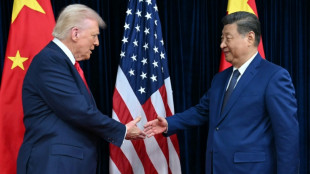
-
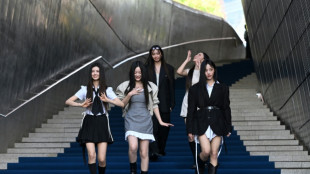 Court rules against K-pop group NewJeans in label dispute
Court rules against K-pop group NewJeans in label dispute
-
India's Iyer says 'getting better by the day' after lacerated spleen
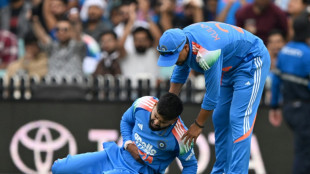
-
 Yesavage fairytale carries Blue Jays to World Series brink
Yesavage fairytale carries Blue Jays to World Series brink
-
Bank of Japan keeps interest rates unchanged

-
 Impoverished Filipinos forge a life among the tombstones
Impoverished Filipinos forge a life among the tombstones
-
Jokic posts fourth straight triple-double as Nuggets rout Pelicans

-
 UN calls for end to Sudan siege after mass hospital killings
UN calls for end to Sudan siege after mass hospital killings
-
Teenage Australian cricketer dies after being hit by ball

-
 As Russia advances on Kupiansk, Ukrainians fear second occupation
As Russia advances on Kupiansk, Ukrainians fear second occupation
-
Trade truce in balance as Trump meets 'tough negotiator' Xi

-
 China to send youngest astronaut, mice on space mission this week
China to send youngest astronaut, mice on space mission this week
-
Yesavage gem carries Blue Jays to brink of World Series as Dodgers downed

-
 With inflation under control, ECB to hold rates steady again
With inflation under control, ECB to hold rates steady again
-
Asia stocks muted with all eyes on Trump-Xi meeting

-
 Personal tipping points: Four people share their climate journeys
Personal tipping points: Four people share their climate journeys
-
Moto3 rider Dettwiler 'no longer critical' after crash: family

-
 US economy in the dark as government shutdown cuts off crucial data
US economy in the dark as government shutdown cuts off crucial data
-
Trump orders nuclear testing resumption ahead of Xi talks

-
 'Utter madness': NZ farmers agree dairy sale to French group
'Utter madness': NZ farmers agree dairy sale to French group
-
Samsung posts 32% profit rise on-year in third quarter

-
 30 years after cliffhanger vote, Quebec separatists voice hope for independence
30 years after cliffhanger vote, Quebec separatists voice hope for independence
-
Taxes, labor laws, pensions: what Milei wants to do next
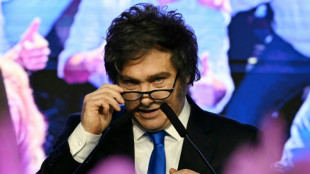
-
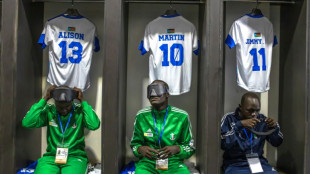 South Sudan's blind football team dreams of Paralympic glory
South Sudan's blind football team dreams of Paralympic glory
-
US says 4 killed in new strike on alleged Pacific drug boat
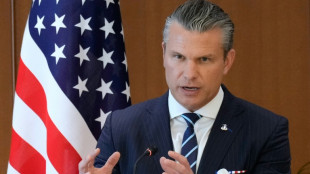
-
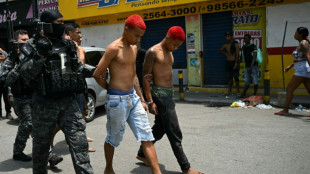 What we do and don't know about Rio's deadly police raid
What we do and don't know about Rio's deadly police raid
-
'They slit my son's throat' says mother of teen killed in Rio police raid

-
 Arteta hails 'special' Dowman after 15-year-old makes historic Arsenal start
Arteta hails 'special' Dowman after 15-year-old makes historic Arsenal start
-
Google parent Alphabet posts first $100 bn quarter as AI fuels growth
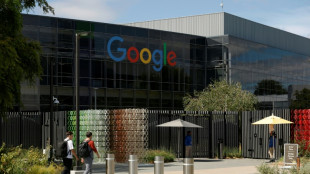
-
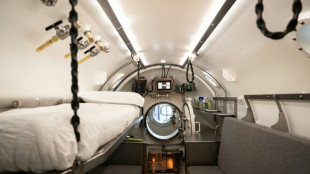 Underwater 'human habitat' aims to allow researchers to make weeklong dives
Underwater 'human habitat' aims to allow researchers to make weeklong dives
-
Maresca slams Delap for 'stupid' red card in Chelsea win at Wolves

-
 'Non-interventionist' Trump flexes muscles in Latin America
'Non-interventionist' Trump flexes muscles in Latin America
-
Slot defends League Cup selection despite not meeting 'Liverpool standards'
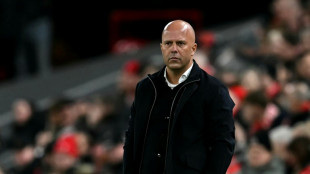
-
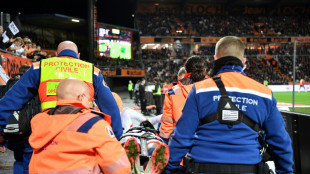 'Poor' PSG retain Ligue 1 lead despite stalemate and Doue injury
'Poor' PSG retain Ligue 1 lead despite stalemate and Doue injury
-
Liverpool crisis mounts after League Cup exit against Palace

-
 Kane scores twice as Bayern set European wins record
Kane scores twice as Bayern set European wins record
-
Radio Free Asia suspends operations after Trump cuts and shutdown

-
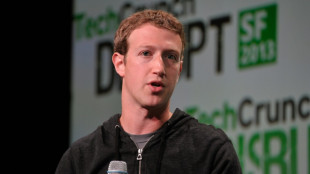 Meta shares sink as $16 bn US tax charge tanks profit
Meta shares sink as $16 bn US tax charge tanks profit
-
Dollar rises after Fed chair says December rate cut not a given
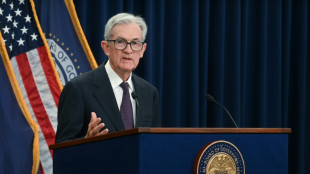
-
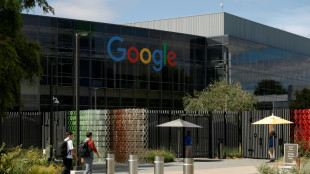 Google parent Alphabet posts first $100 bn quarter as AI drives growth
Google parent Alphabet posts first $100 bn quarter as AI drives growth
-
Rob Jetten: ex-athlete setting the pace in Dutch politics
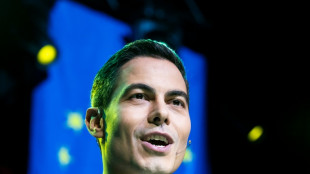

RFK Jr's autism 'epidemic' study raises anti-vaxx fears
US Health Secretary Robert F. Kennedy Jr's announcement of a vast study to reveal the cause of a so-called autism "epidemic" has alarmed medical experts, who fear it could rekindle thoroughly debunked conspiracy theories about vaccines.
Kennedy, a vaccine sceptic who has long promoted disproven theories linking childhood vaccines to autism, said Thursday that hundreds of scientists would determine by September why autism rates have been rising.
"And we'll be able to eliminate those exposures," he added, in a comment widely considered to be a reference to vaccines.
However autism organisations, doctors and scientists rejected the idea that there is an "autism epidemic", saying five months was not enough time for such a study -- and that this subject has already been extensively looked at.
The Autistic Self Advocacy Network, a US nonprofit, said Kennedy's announcement was a "clear signal" that the health department "intends to produce rigged and fraudulent research that supports Kennedy and (US President Donald) Trump's pre-existing beliefs in a connection between autism and vaccines".
Hugo Peyre, a child psychiatrist at University Hospital of Montpellier in France, told AFP that Kennedy's comments demonstrated "ignorance of the scientific literature".
Dozens of scientific studies over decades have confirmed that there is no link between autism and vaccines.
- Genetic, environmental factors -
There is no single known cause for autism, a complex condition related to the development of the brain which can affect how people behave, communicate, learn and interact with others.
There are likely many factors that make children more likely to have autism, including genetic and environmental factors, according to the World Health Organization.
"Nearly 200 genes have been associated with autism, and approximately 80 percent of autism cases can be linked to genetic mutations," Thomas Bourgeron, head of the human genetics and cognitive functions lab at France's Pasteur Institute, told AFP.
Yet vaccine sceptics including Kennedy have repeatedly promoted the debunked conspiracy theory that there is a link between the MMR (measles, mumps and rubella) vaccine and autism.
This claim dates back to a retracted and repeatedly refuted study by Andrew Wakefield, a British doctor who was struck off the medical register for serious professional misconduct.
Yet this misinformation still spreads widely on social media, which can lead to lower vaccination rates.
During a measles outbreak in the southwestern United States, the vast majority of patients have been unvaccinated, according to the US Centers for Disease Control and Prevention (CDC).
A second child died during the outbreak last week.
- Why are autism cases rising? -
A key argument put forth by vaccine sceptics is that autism cases have been soaring.
Around one percent of children are autistic, the World Health Organization estimates. That is up from 0.62 percent in 2012, according to a 2022 study.
In the US, the rate of autism in children born in 1992 was one in 150, which rose to one in 36 for those born in 2012, according to the CDC.
The rising number of autism diagnoses is partly due to growing awareness about the condition, experts say.
And in the last couple of decades, milder forms of autism and related conditions have been folded into the umbrella term of autism spectrum disorder (ASD).
So for Peyre, it is beyond the pale to speak about an "autism epidemic".
There is an important distinction between how many people actually have autism, "which corresponds to the state of health of the population and which seems to be stable", and how many people are being diagnosed, he emphasised.
Even if autism diagnoses have "increased dramatically since the early 2000s," this does not mean "that children are sicker," he explained.
Bourgeron said that "diagnostic criteria have changed dramatically in recent decades, with greater consideration given to people without intellectual disabilities -- and better detection in girls".
"Healthcare professionals and families are also much more attentive to autism spectrum disorders," Peyre added.
Everyone agrees that more research is needed on the subject, with Peyre pointing in particular to a need to better understand risk factors before birth and the weeks afterwards.
But "the factors identified by Robert F. Kennedy Jr. have already been dismissed by the scientific community with very high-quality studies," he added.
R.Braegger--VB




